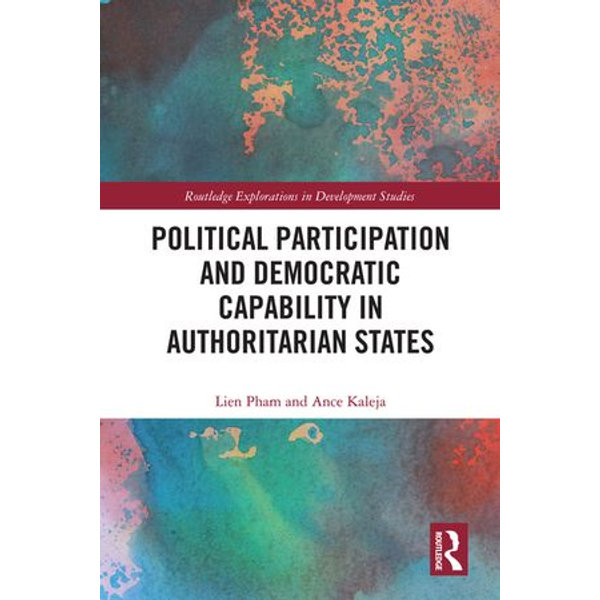Political Participation and Democratic Capability in Authoritarian States
Par :
Lien Pham,
and Ance Kaleja
Release date: Feb 2021
Routledge
Nombre de pages: 226
ISBN: 9780367375812


This book provides an innovative theoretical and empirical exploration of the political participation and democratic capability of people living in authoritarian states. Merging perspectives from sociology and political science, the book demonstrates that despite autocratic restrictions on opposition, there is often still leeway for people to express themselves as political agents and to develop democratic capability.
The first two chapters problematise political participation and develop an interdisciplinary three-domain framework that allows for critical engagement with and appreciation of the contexts and varied ways in which participatory activities occur. This framework is applied to analyse six country case studies: Singapore, Jordan, Belarus, Cuba, Nigeria, and Vietnam. Drawing on a range of data sources and different analytical entry points, the book investigates the substantive opportunities people have in exercising political agency and the implications for democratic capability. The book concludes by summarising the emergent themes and examining the potential of applying this method of inquiry in other political contexts. Encompassing both governmental and societal practices, the book offers insights into state-society relations and their role in constructing political values and goals for participation, which people negotiate and mediate to inform their choices, modes, and forms of civic engagement. These insights present a broad approach towards the study of participation, with relevance for understanding political participation in various societies under non-democratic and democratic rule alike.
This book will be useful for researchers and students interested in political dynamics and intersections with economic, cultural, and social aspects of development. It will also be beneficial for practitioners interested in participatory actions and social change.











